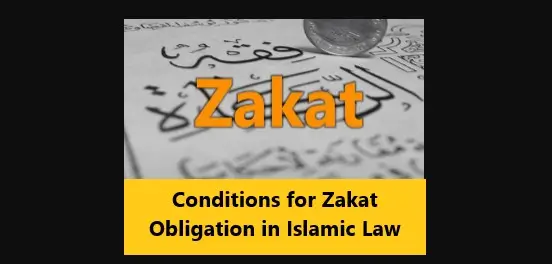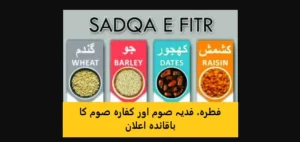Conditions for Zakat Obligation in Islamic Law.
Zakat: Understanding the Conditions for Obligation in Islamic Law
Zakat, one of the five pillars of Islam, holds immense significance for Muslims. It’s a mandatory act of charity that signifies the importance of wealth sharing and supporting those in need.
Read More: Pakistan Banks Closed on 1st Ramadan for Zakat Deduction
However, fulfilling this religious duty comes with specific conditions outlined in the Quran and Sunnah.
Key Conditions for Zakat Obligation:
- Minimum Wealth Threshold (Nisab): Zakat only becomes obligatory when a Muslim’s wealth surpasses a specific minimum amount known as Nisab. This threshold ensures that Zakat is paid on surplus wealth, not on basic necessities required for daily living.
- Ownership and Control: The individual must possess complete ownership and control over the wealth at the time of Zakat calculation and distribution. This excludes situations where the wealth is inaccessible, such as debts owed to others or assets not in the individual’s physical possession.
- Intention and Purpose: While calculating and distributing Zakat, a clear intention to fulfill this religious obligation is crucial. This ensures the act is performed with sincerity and adheres to the core principles of Zakat.
- Designated Recipients: Zakat must be distributed amongst eligible recipients as defined in the Quran and Sunnah. These categories encompass the poor, debtors, travelers, and others identified in Islamic sources. Distributing Zakat to ineligible individuals doesn’t fulfill the religious requirement.
- Muslim Identity: Both the giver (Muzakki) and the receiver (Mustahiq) of Zakat must be Muslims. According to Islamic teachings, Zakat cannot be given to non-Muslims.
- Sanity and Maturity: The obligation to pay Zakat applies solely to mentally sound and mature individuals. Minors and those deemed mentally incapable are exempt from this responsibility.
Additional Considerations:
- Zakat Calculation: Understanding the Nisab value and the applicable Zakat rate (2.5%) is crucial for accurate Zakat calculation.
- Zakat Distribution: Muslims are encouraged to research eligible Zakat organizations or directly distribute Zakat to those in need within the designated recipient categories.
Note: The information above might not be accepted 100%. Please verify from your own sources. We will not be responsible for any kind of loss due to our content.
For more news, please visit Munafa Marketing.




